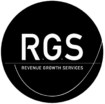
How to Build an Effective B2B Marketing Campaign?
Have you ever wondered how a successful B2B marketing campaign benefits small businesses? B2B marketing campaigns connect you with other companies effectively.
Focusing on making a meaningful impact that drives engagement and builds lasting relationships is important. By understanding the complexities of B2B marketing and applying strategic approaches, you can discover new growth opportunities and achieve impressive success.
Revenue Growth Services helps you through each step to develop a strong B2B marketing campaign, from understanding your audience to measuring your results. Whether new to B2B marketing or looking to improve your strategies, these insights will provide the tools to boost your business significantly.
Let’s explore how to create a campaign that resonates and delivers impactful results.
Understanding Your Target Audience
The first step in creating an influential B2B marketing campaign is understanding your target audience. B2B clients often have specific needs and pain points that differ from those of individual consumers. By identifying these needs and segmenting your audience, you can more effectively customise your marketing messages.
Customer Profiles
Create detailed customer profiles to visualise your target audience. Consider factors such as industry, company size, job roles, and challenges they face.
Categorisation
Break down your audience based on criteria such as industry, job role, and company size. This approach allows you to customise your communication to address particular requirements and challenges.
Setting Clear Marketing Goals
It is important to set clear, achievable goals for the victory of your B2B marketing campaigns. These objectives should align with your overall business objectives and provide a clear direction for your marketing efforts.

SMART Goals
Make sure your goals are Specific, Measurable, Achievable, Relevant, and Time-bound. For example, instead of an unclear goal like "increase leads," set a specific goal such as "increase leads by 20% in the next quarter."
Common Goals
Typical B2B marketing goals include lead generation, brand awareness, customer retention, and sales growth. Determine what success looks like for each goal.
Developing a Value Proposition
A strong value proposition is important for differentiating your business from competitors and communicating the unique benefits you offer. Your value proposition should clearly articulate why potential clients should choose your products or services.
Drafting a Value Proposition
Focus on your business's benefits and solutions. Highlight what makes your offerings unique and how they solve your clients' problems.
Examples
A compelling value proposition might be, "Our advanced software solutions simplify your operations, saving you time and money while boosting productivity."
Creating High-Quality Content
Content is at the heart of any successful B2B marketing campaign. High-quality, informative content positions your business as an enterprise leader and helps build trust with potential clients.
Types of Content
Consider creating blogs, whitepapers, case studies, webinars, and infographics. Each type of content serves a different purpose and can engage your audience differently.
Addressing Main Points
Assure your content addresses the specific points of your target audience. Provide actionable insights and solutions that demonstrate your expertise and value.
Utilising Multiple Marketing Channels
An influential B2B marketing campaign leverages multiple channels to reach and engage with your audience. Each channel offers unique benefits and can help you achieve different marketing goals.

Email Marketing
Use personalised email campaigns to nurture leads and inform your audience about your offerings.
Social Media
Engage with your audience on platforms like LinkedIn, where many professionals and businesses are active. Share valuable content and partake in industry discussions.
PPC and SEO
Invest in pay-per-click (PPC) advertising and search engine optimisation (SEO) to increase your online visibility and attract potential clients searching for your services.
Using SEO for B2B Marketing
SEO is a necessary component of any B2B marketing strategy. By optimising your website and content for search engines, you can attract more organic traffic and improve your online presence.
Keyword Research
Conduct thorough keyword analysis to specify the terms your target audience is exploring. Use tools like Google Keyword Planner and SEMrush to find relevant keywords.
On-Page SEO
Optimise your website's content, meta tags, headers, and images with relevant keywords. Make sure your site is user-friendly and mobile-responsive.
Off-Page SEO
Build backlinks from reputable websites to improve your domain authority. Participate in guest blogging, industry forums, and social media to increase your online footprint.
Implementing Account-Based Marketing (ABM)
Account-Based Marketing (ABM) is a highly targeted strategy focusing on specific accounts or companies rather than a broad audience. ABM lets you personalise your marketing efforts and build stronger relationships with high-value clients.
ABM Strategy
Identify key accounts that align with your business goals. Develop personalised marketing campaigns custom to each account's needs and essential points.
Success Stories
Share examples of successful ABM campaigns to demonstrate the efficacy of this approach. Highlight the strategies used and the results achieved.
Measuring and Analysing Campaign Performance
Tracking and analysing your campaign’s performance is important for understanding what works and what doesn’t. Use data insights to make informed decisions and continuously improve your marketing efforts.
Key Metrics
Monitor conversion rates, return on investment (ROI), lead quality, and engagement levels. These metrics provide valuable insights into your campaign's significance.
Tools and Software
Use marketing analytics tools like Google Analytics, HubSpot, and Salesforce to track and measure your campaign performance.
Adjusting and Refining Your Strategy
Revise and refine your marketing strategy based on your performance data to improve results. Constant improvement and adaptation are key to long-term success.
Data Insights
Use the insights gained from your analysis to identify areas for improvement. Make necessary adjustments to your content, messaging, and targeting strategies.
Ongoing Improvement
Regularly review and update your marketing campaigns to ensure they remain practical and relevant.

Case Study: A Successful B2B Marketing Campaign
A real-world example of a successful B2B marketing campaign can provide valuable insights and inspiration for your efforts. Here’s a case study of how one company achieved remarkable results.
Company Overview
Provide a brief overview of the company and its industry.
Campaign Strategies
Detail the strategies and tactics used in the campaign, such as content marketing, SEO, and ABM.
Results Achieved
Highlight the measurable outcomes of the campaign, such as increased leads, higher conversion rates, and improved brand awareness.
Lessons Learned
Share the key takeaways from the campaign and apply them to other marketing efforts.
Ready to Boost Your B2B Marketing?
Connect with RGS today for personalised strategies that drive results. Our expert team is here to help you reach your business goals and take your marketing efforts to the next level!
